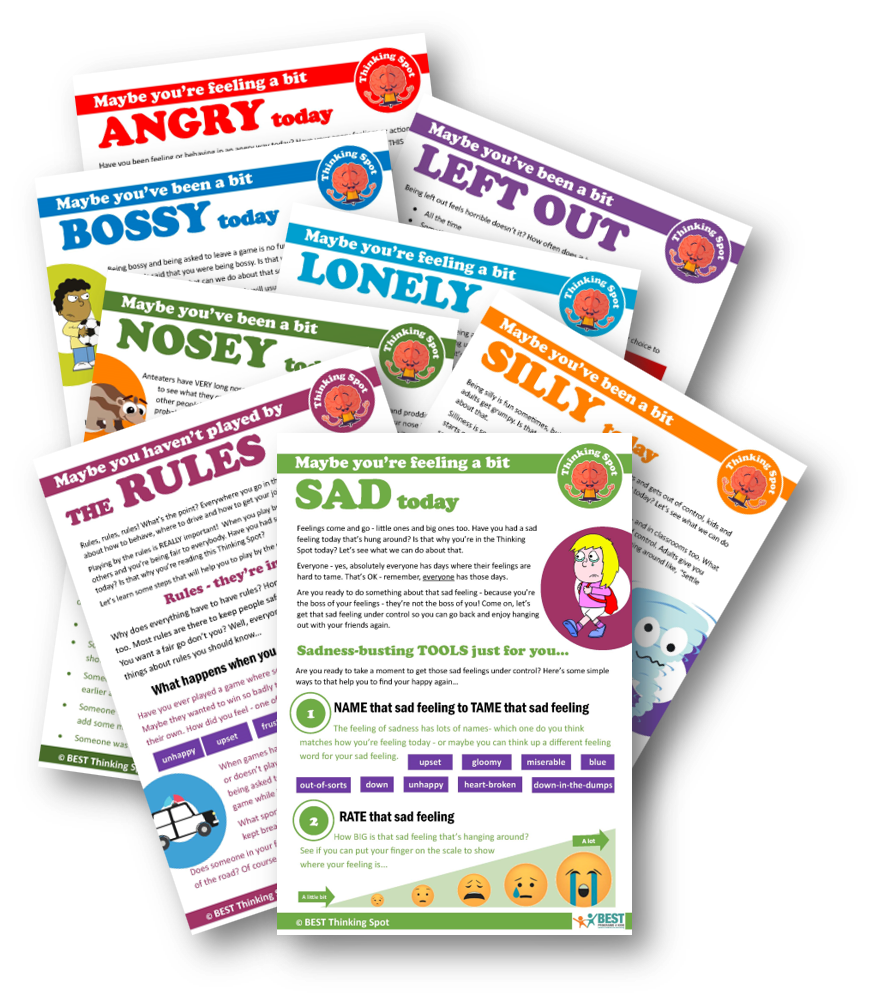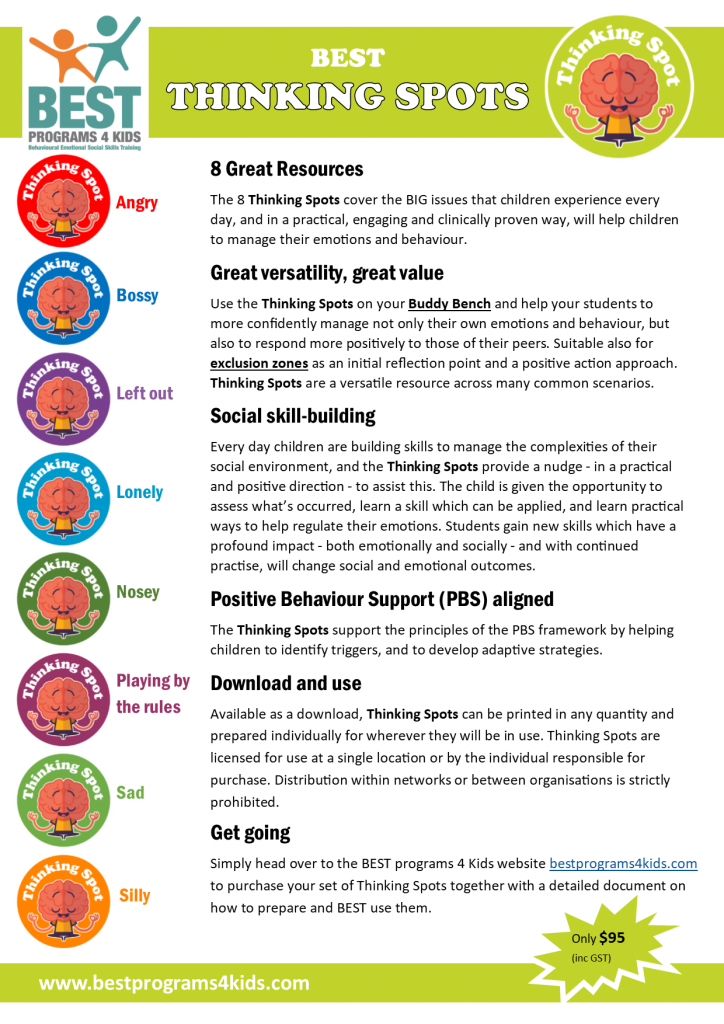The BEST Thinking Spots are the simplest solution to helping children to manage commonly occurring playground behaviours that lead to emotional dysregulation, poor behaviour and self or other initiated exclusion.
These brightly coloured, practical e-Resources mean that you can download and print them for your location in whatever quantity you would like! Put them on your Buddy Bench, exclusion zones or classrooms to provide children with the skills to deal with:
- Angriness – Identifying the intensity and the triggers of angry feelings is the very first step in getting them under control. Repeatedly practising a skill to get those feelings back under control helps a child to get back into play and learning.
- Bossiness – Exclusion is common for a child with uncontrolled bossiness. Learning to identify self-regulation techniques that work, how to re-build relationships that have suffered, and how to avoid future exclusions is essential.
- Being left out – it isn’t always Nasty – sometimes, it’s quite Normal. Whatever the reason, helping a child who has not been included to positively manage themselves and others builds resilience and social confidence.
- Loneliness – Being alone and being lonely are two very different happenings for a child. Changing the mindset of the lonely child to one of social success and then teaching the skills that help socialinclusion are essential – and achievable using a simple friendliness formula.
- Nosiness – Telling tales, getting involved unnecessarily and chipping in where it’s not needed is frustrating for adults and confusing for children. Teaching awareness of when to be involved and when to MYOB and ‘buzz off’ is something all children need to learn.
- Not playing by the rules – A common source of playground frustration for children and adults alike is the inability to play by the rules. Learning about the reasons for rules and how to be a good sport is necessary for all children in some sticky situations.
- Sadness – A normal feeling – but in what intensity? Children experience situations at school and at home that impact their happiness which in turn affects their learning and social success. Emotional literacy, self-soothing techniques and trusted relationship building skills are essential!
- Silliness – Sillyness the Speed Wobble – a common visitor to the classroom and playground. Hysterical emotional arousal is contagious and difficult to manage for a child being affected and an adult trying to manage them. Knowing the triggers and how to calm down are vital skills.


